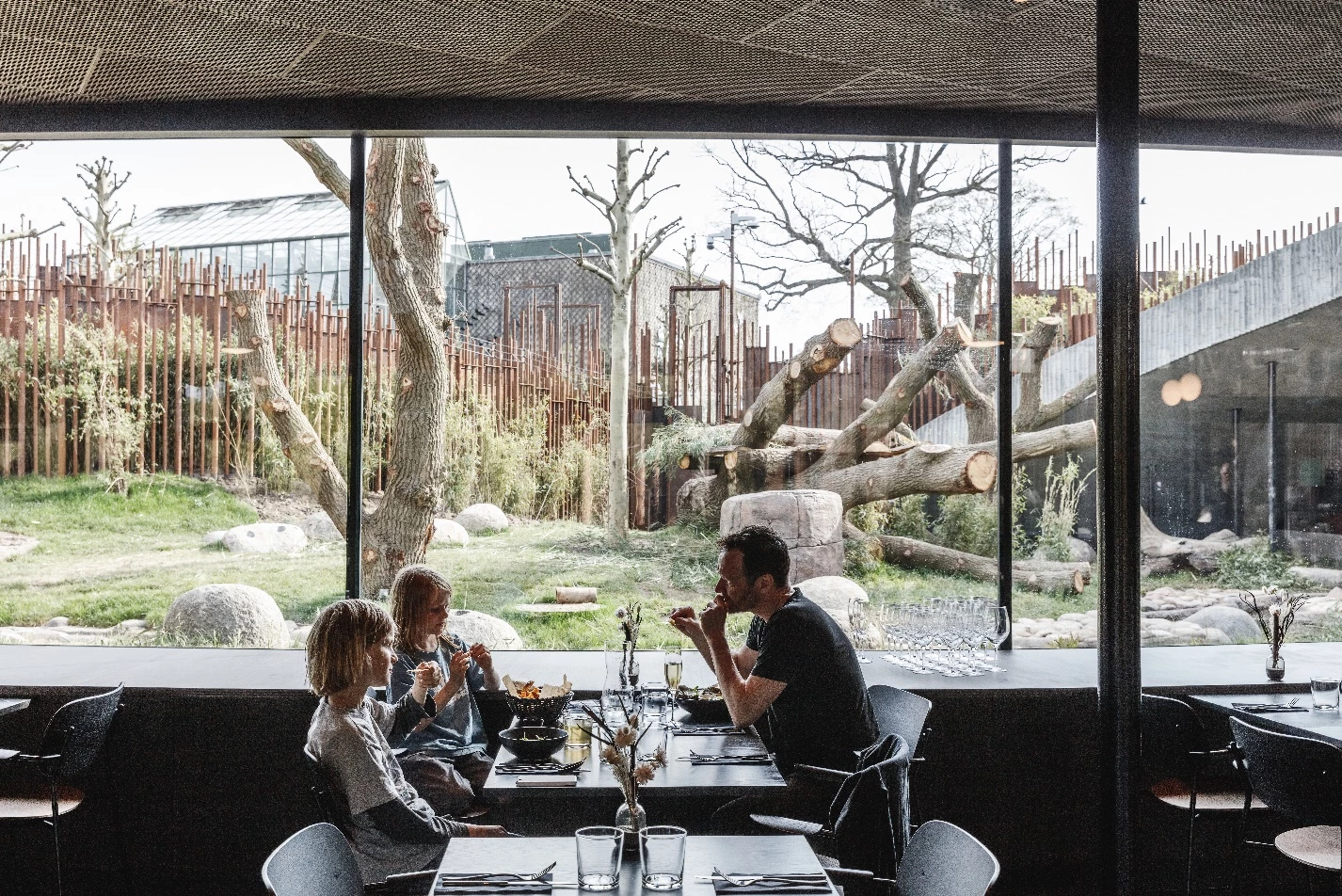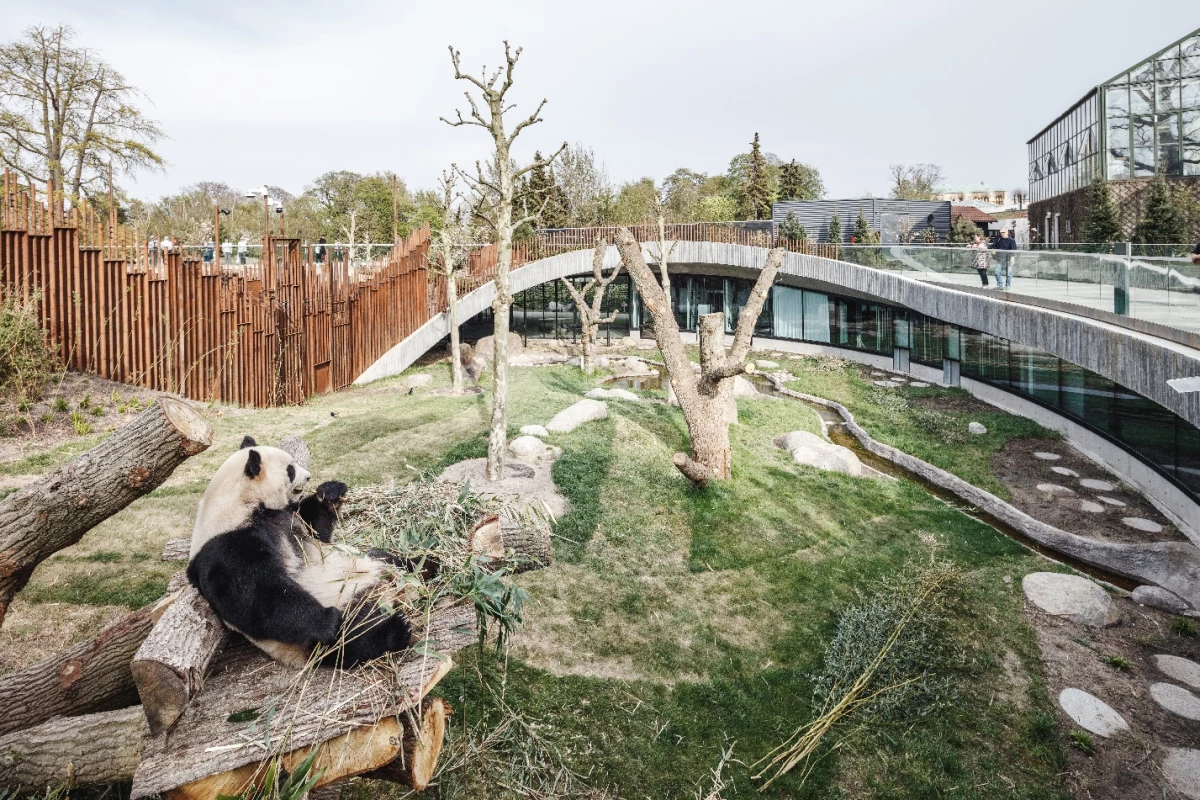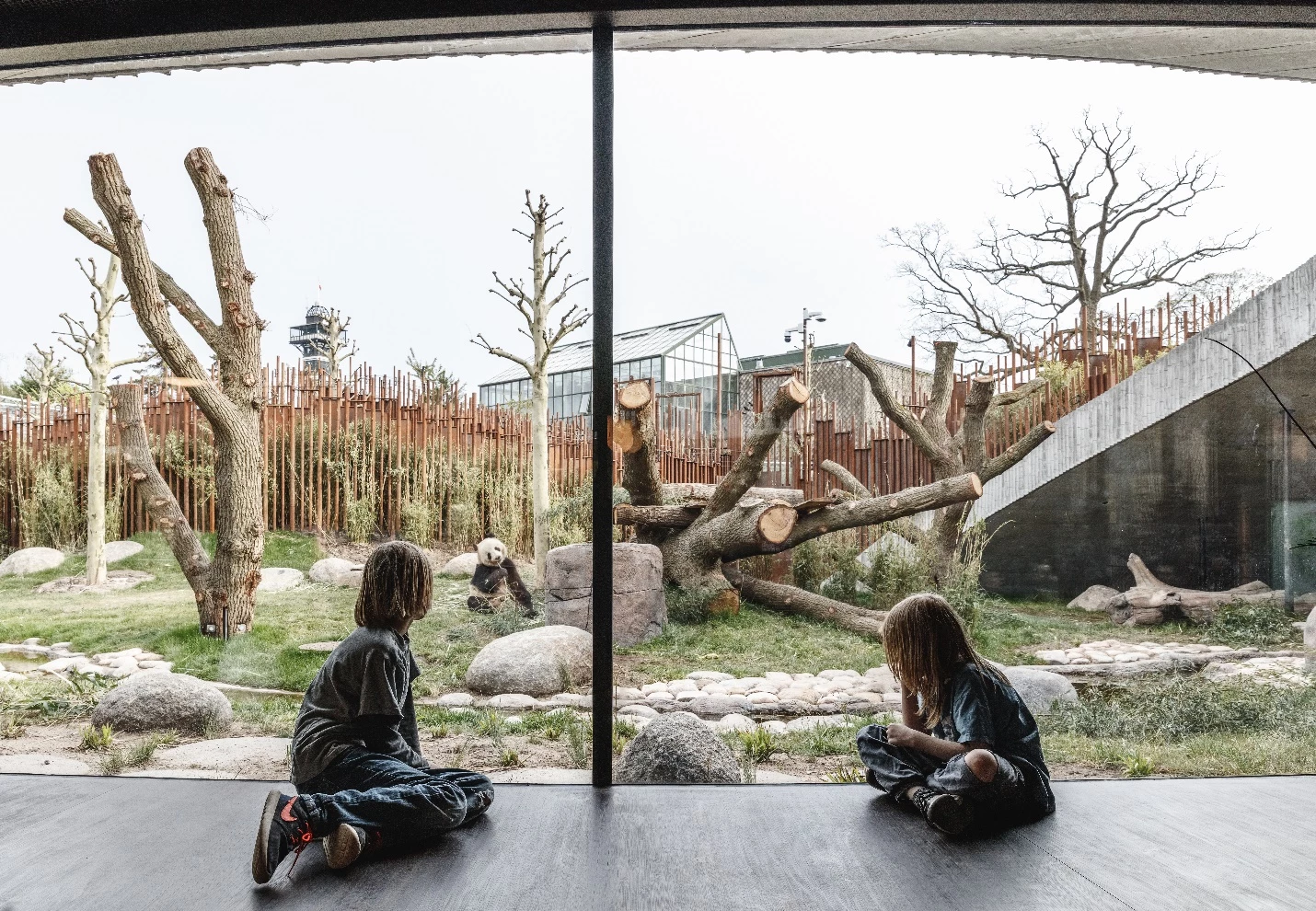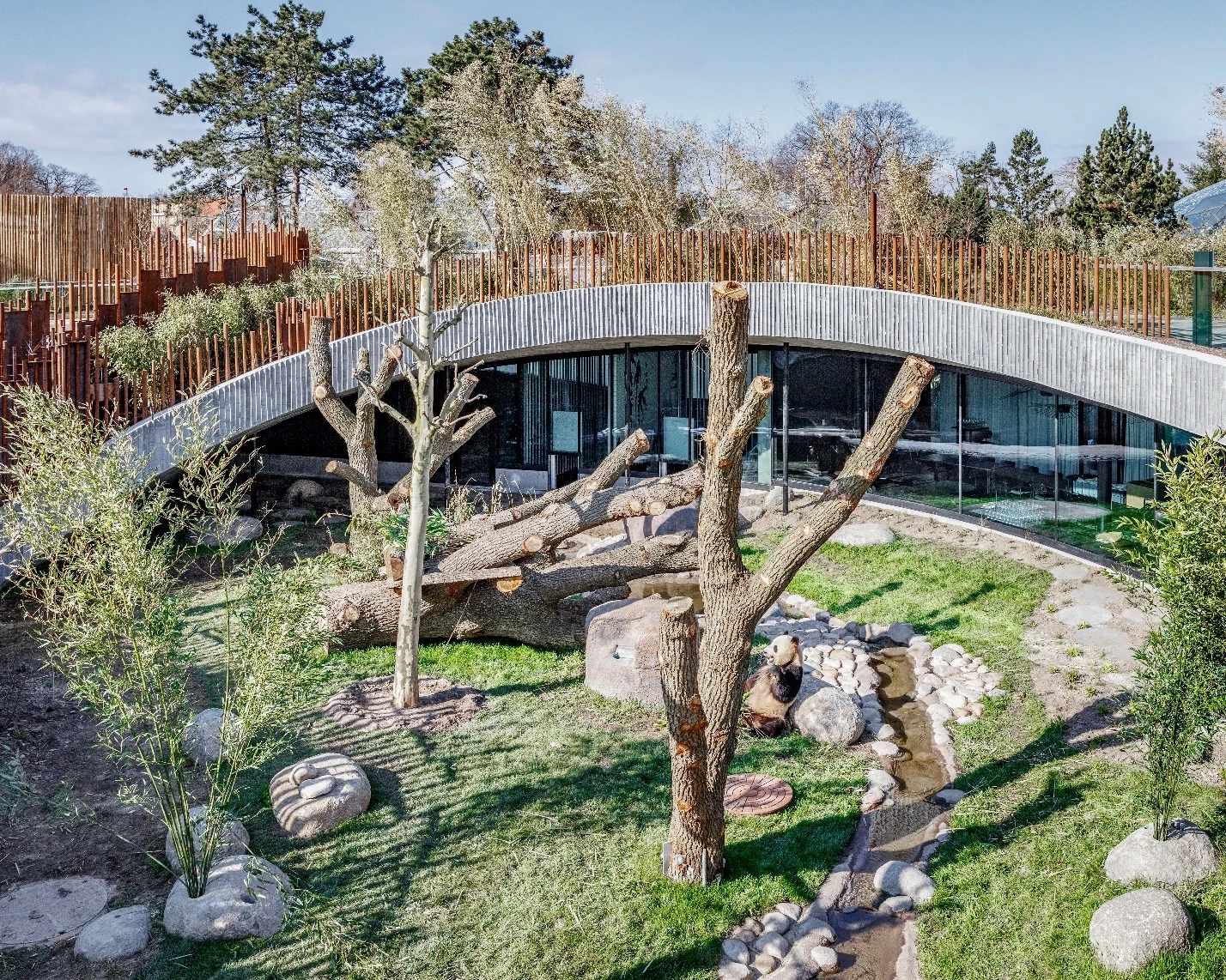Bjarke Ingels Group (BIG) unveiled its plan for a new Panda House for Copenhagen Zoo back in 2017. The circular enclosure is now complete and hosts two giant pandas who have settled into their yin and yang-inspired home.
The Panda House, which was completed in collaboration with Schønherr Landscape Architects and MOE, opened to visitors a few months ago following the arrival of two pandas from China named Mao Sun and Xing Er. It measures 4,950 sq m (53,281 sq ft) and its yin and yang design is meant to keep the bears totally separate until the time comes to mate.
"Architecture is like portraiture," says Bjarke Ingels, Founding Partner and Creative Director at BIG. "To design a home for someone is like capturing their essence, their character and their personality in built form. In the case of the two great pandas, their unique solitary nature requires two similar but separate habitats - one for Mao Sun and one for Xing Er.
"The habitat is formed like a giant yin and yang symbol, with two halves: the male and the female sides complete each other to form a single circular whole. The curvy lines are undulating in section to create the necessary separation between him and her - as well as between them and us. Located at the heart of the park, we have made the entire enclosure accessible from 360 degrees, turning the two pandas into the new rotation point for Copenhagen Zoo."

The Panda House's ground floor has a restaurant that allows diners to observe the pandas going about their business as they eat, while its upper floor provides visitors with excellent views of the animals, even when they retreat into the shade or to rest.
The enclosure's landscaping is very carefully laid-out with vegetation, rocks, climbing trees and tree trunks to try and keep the pandas happy. Water features including streams and waterfalls are also installed and the idea, says BIG, is that the humans are the visitors in the pandas' home, rather than the pandas being the exotic guests from far away.
Source: BIG








